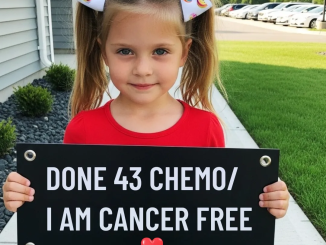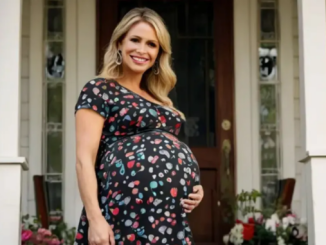
I always knew that bringing Ada to the village would be tricky. Not because of her, but because of my mother.
Ada was born and raised in the city. A true city girl.
Smart, eloquent, well-mannered, and down-to-earth. But she was unfamiliar with village customs. She had never fetched water from a stream, nor pounded yams, nor knelt to greet elders.
But she had won my heart. And that was all that mattered to me.
We arrived that Friday evening, just before sunset. My father was outside, sipping palm wine from his gourd. As soon as he saw us, he jumped up, beaming with joy. “My son! Hey, hey! You’ve brought us a wife!”
He hugged her as if he had known her all his life. “No problem, my daughter. Any woman who can make this stubborn boy smile like that must be special.” Ada laughed shyly, greeted him respectfully, and tried to fit in.
Inside, my mother greeted us as well, smiling at first. But when Ada introduced herself and mentioned that she was from Lagos, her smile faded. Something changed.
That evening, Ada helped in the kitchen. She asked where the spices were, helped chop the vegetables, and even offered to stir the soup. She was trying her best. But my mother barely acknowledged her efforts.
The next morning, the situation had worsened.
Mom started “testing” her. She asked her to pound the yams herself. She told her to fetch water from the stream in a gourd. She told her to pick bitter leaves without breaking them. Ada did what she could, but I could see the silent mockery behind my mother’s instructions. And when Ada stepped away, she muttered, “City girls know how to paint their eyelashes, but not how to serve a man.”
I tried to stay silent. Until I found Ada crying silently that night in our room. “I don’t think she likes me,” she whispered. “I’ve tried, but I feel like I’m failing at everything.”
I wiped her tears away. “She doesn’t decide who I marry,” I said. “I do. And I choose you.”
The next day, I took my mother aside. We sat under the avocado tree, the same spot where she used to feed me roasted corn when I was little.
“Mom, why are you doing this?” I asked.
“She’s not one of us,” she said curtly. “She doesn’t know anything about our way of life. It won’t last. You’ll suffer.”
“Mom, being from the village doesn’t guarantee a good marriage. Ada respects me. She’s smart. She’s willing to learn. That’s more than enough.”
“She doesn’t know how to cook our food,” she argued.
“Yesterday she was right next to you, asking you questions about ofe akwu. You pushed her away. How will she learn if you don’t teach her?”
She fell silent. Then she sighed. “I just don’t want you to end up with someone who will leave at the first sign of trouble.”
“I won’t,” I said gently. “But even if I do, let me find out for myself.”
Later that afternoon, I saw her call Ada over to sit beside her. She started talking; small talk at first. She asked where she worked, what she liked to cook.
Then they laughed. And by evening, she let Ada help her stir the soup.
It wasn’t a full embrace. But it was a start.
When we were packing to leave two days later, Mom gave Ada a small woven bag. Inside was a hand-carved comb and a bottle of palm oil.
“For your cooking,” she said. “You’ll need it.”
And then she hugged her. Tight. Like someone letting go.
CITY WIFE
Episode 2
I used to count the months. At first, with hope. Then, with anxiety. And finally, with a silent shame.
Four years. Four long years of marriage, love, prayer, and effort, and still no child in my arms. In the first year, everyone told us to relax, to enjoy ourselves. “It will happen when it’s meant to,” they said.
The second year, the comments started. Subtle glances. Aunties who shifted uncomfortably when I entered the room.
By the third year, I couldn’t go to weddings or baby showers without someone whispering behind my back.
And now, the fourth year. People had stopped asking when. They had started asking why not.
But what they didn’t know—what even I struggled to accept—was that we had done everything. Every test. Every hospital. Every herbal remedy.
Blood tests, scans, X-rays, hormone tests. From one state to another. And every result was the same: We were both fine. Healthy. Fertile.
And yet… I still didn’t have a child.
I started to think that maybe “fine” wasn’t enough. Maybe fate was laughing at me behind the curtain of science. Maybe my womb held secrets that even machines couldn’t read.
And just when I thought I had found a way to live with the silence in our house, my mother arrived.
She didn’t even give us any warning. She just appeared one afternoon: her suitcase neatly packed, her face as stern as stone. “I came to see how you’re doing,” she said, entering and surveying the room like an inspector.
I froze.






Leave a Reply